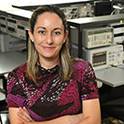Article
On the Convergence of Constrained Particle Filters
IEEE Signal Processing Letters
(2017)
Abstract
The power of particle filters in tracking the state of nonlinear and non-Gaussian systems stems not only from their simple numerical implementation but also from their optimality and convergence properties. In particle filtering, the posterior distribution of the state is approximated by a discrete mass of samples, called particles, that stochastically evolve in time according to the dynamics of the model and the observations. Particle filters have been shown to converge almost surely toward the optimal filter as the number of particles increases. However, when additional constraints are imposed, such that every particle must satisfy these constraints, the optimality properties and error bounds of the constrained particle filter remain unexplored. This letter derives performance limits and error bounds of the constrained particle filter. We show that the estimation error is bounded by the area of the state posterior density that does not include the constraining interval. In particular, the error is small if the target density is “well localized” in the constraining interval.
Disciplines
Publication Date
June 1, 2017
DOI
10.1109/LSP.2017.2696160
Citation Information
Nesrine Amor, Nidhal Carla Bouaynaya, Roman Shterenberg and Souad Chebbi. "On the Convergence of Constrained Particle Filters" IEEE Signal Processing Letters Vol. 24 Iss. 6 (2017) p. 858 - 862 Available at: http://works.bepress.com/nidhal-bouaynaya/7/
